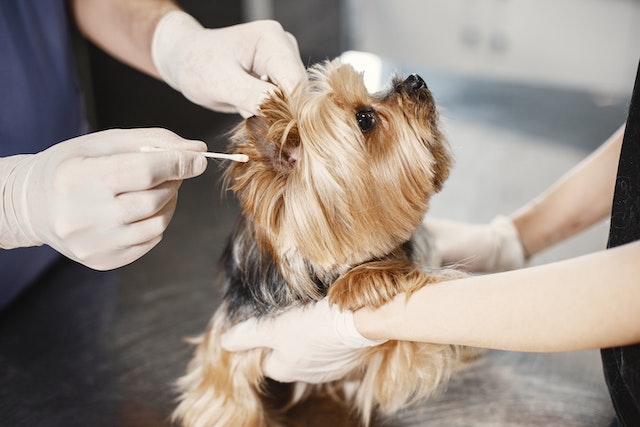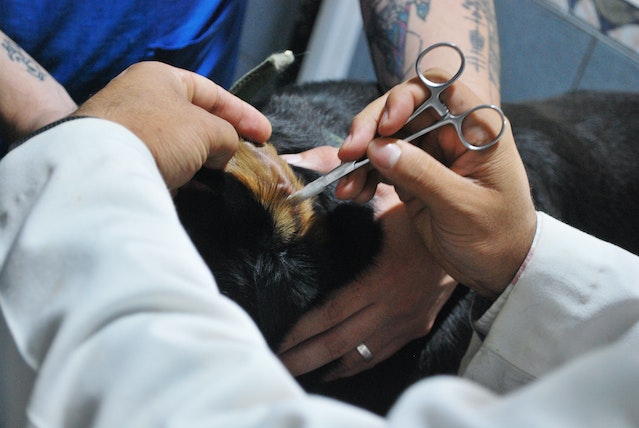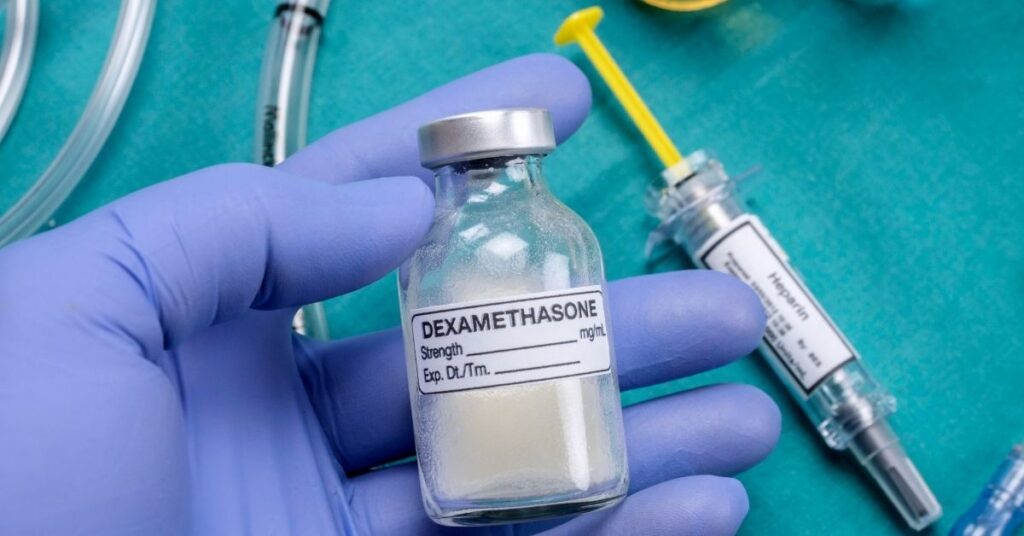Now Reading: Wanna Get Rid of Your Pet Ear Infection? Here Is The Perfect Solution For It
- 01
Wanna Get Rid of Your Pet Ear Infection? Here Is The Perfect Solution For It
Wanna Get Rid of Your Pet Ear Infection? Here Is The Perfect Solution For It
Overview:
Don’t be scared of your pet’s ear infection. Although ear health is an important aspect of pet care, regular cleaning and checking of a pet’s ears can help prevent infections, allergies, and other issues. Signs of ear problems in pets include excessive scratching, shaking of the head, odors, discharge, and redness or swelling in the ears. If a pet is showing any of these symptoms, it is important to take them to a veterinarian for an examination. To maintain good ear health, a pet’s ears should be cleaned regularly with a gentle cleaner and checked for any signs of irritation or infection. Additionally, pets with long ears, such as Cocker Spaniels and Basset Hounds, may be more prone to ear problems and may need more frequent attention.

Hope You Must Be Curious About The Causes Of Ear Infection In Your Lovely Pet:
Ear infections in pets can be caused by a variety of factors, including:
- Allergies: Allergies can cause inflammation in the ear, which can lead to an infection.
- Foreign objects in the ear: Foreign objects, such as grass seeds or small toys, can become stuck in the ear and cause an infection.
- Ear mites: Ear mites are small parasites that can infest the ear and cause an infection.
- Moisture in the ear: Moisture in the ear, such as from swimming or bathing, can create an environment conducive to the growth of bacteria or yeast, leading to an infection.
- Underlying medical conditions: Certain medical conditions, such as diabetes or a compromised immune system, can increase the risk of ear infections in pets.
If you suspect that your pet has an ear infection, it is important to consult with a veterinarian for proper diagnosis and treatment. Ignoring ear infections can lead to more serious problems, such as hearing loss or damage to the ear canal.
Symptoms:
These infections can cause discomfort and pain for your pet and can lead to more serious problems if left untreated. Here are some common symptoms of ear infections in pets:
Excessive scratching or shaking of the head:
If your pet is constantly scratching or shaking its head, it could be a sign of an ear infection.
Redness or swelling of the ear:
The ear may appear red or swollen if there is an infection present.
Discharge from the ear:
A yellow or brown discharge from the ear can be a sign of an ear infection.
Unpleasant odor from the ear:
An unpleasant or musty odor from the ear can be a sign of an ear infection.
Difficulty hearing:
If your pet seems to be having trouble hearing, it could be a sign of an ear infection.
If you notice any of these symptoms in your pet, it is important to consult with a veterinarian for proper diagnosis and treatment. Ignoring ear infections can lead to more serious problems, such as hearing loss or damage to the ear canal.
Diagnosis:
If you suspect that your pet has an ear infection, it is important to consult with a veterinarian for proper diagnosis and treatment. Here are some steps that may be taken to diagnose an ear infection in a pet:

- Physical examination: The veterinarian will perform a physical examination of your pet’s ears, looking for signs of inflammation, discharge, and other abnormalities.
- Ear swab: The veterinarian may take a sample of the discharge from your pet’s ear and examine it under a microscope to identify the type of infection present.
- Culture and sensitivity test: The veterinarian may take a sample of the discharge from your pet’s ear and send it to a laboratory for culture and sensitivity testing. This can help determine the specific type of bacteria or yeast causing the infection and the most effective treatment.
- X-rays: In some cases, the veterinarian may recommend X-rays to assess the condition of the ear canal and surrounding structures.
- Other diagnostic tests: Depending on the suspected cause of the ear infection, the veterinarian may recommend other diagnostic tests, such as blood tests or a CT scan.
It is important to follow the veterinarian’s recommendations for diagnosis and treatment to effectively address the ear infection and prevent further problems.
Treatment:
These infections in pets are typically treated with medication, such as antibiotics or ear drops. The specific treatment plan will depend on the type and severity of the infection, as well as the underlying cause. Here are some common treatment options for ear infections in pets:
Antibiotics:
If the infection is caused by bacteria, the veterinarian may prescribe antibiotics to kill the bacteria and clear up the infection.
Anti-inflammatory medications:
Anti-inflammatory medications can help reduce swelling and discomfort in the ear.
Ear drops:
Ear drops can help clear up an ear infection and prevent future infections. These may contain antibiotics, anti-inflammatory medications, or other medications to treat the infection.
Surgery:
In severe cases, surgery may be necessary to remove foreign objects or address underlying medical conditions that are contributing to the infection.

It is important to follow the veterinarian’s recommendations for treatment to effectively address the ear infection and prevent further problems. In some cases, follow-up visits may be necessary to ensure that the infection has cleared up completely.
Also, read https://mypetpit.com/canine-parvovirus/
Prevention:
There are several steps you can take to prevent ear infections in your pet. Here are some tips for preventing ear infections in pets:
Keep the ears clean and dry:
Regularly cleaning your pet’s ears and keeping them dry can help prevent ear infections. This can include using a cleaning solution specifically designed for pet ears and gently wiping the inside of the ear with a soft cloth.
Avoid activities that could cause trauma to the ears:
Certain activities, such as rough play or swimming, can cause trauma to the ears and increase the risk of ear infections.
Use ear prevention products:
There are a variety of ear prevention products available for pets, including ear cleaners, ear wipes, and ear drying solutions. These products can help prevent ear infections by keeping the ears clean and dry.
Consult with a veterinarian:
If your pet has a history of ear infections or if you are concerned about their ear health, it is a good idea to consult with a veterinarian for guidance. Your veterinarian can recommend specific prevention measures based on your pet’s individual needs.
By following these prevention tips, you can help reduce the risk of ear infections in your pet and protect their ear health. If you are concerned about ear infections in your pet, it is a good idea to consult with a veterinarian for guidance.













